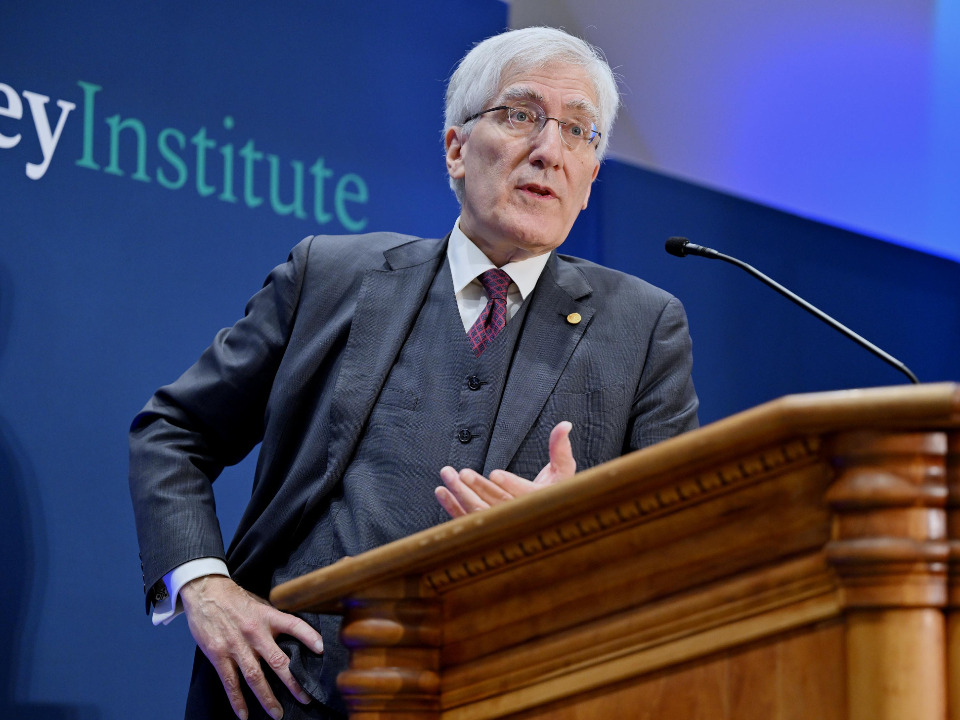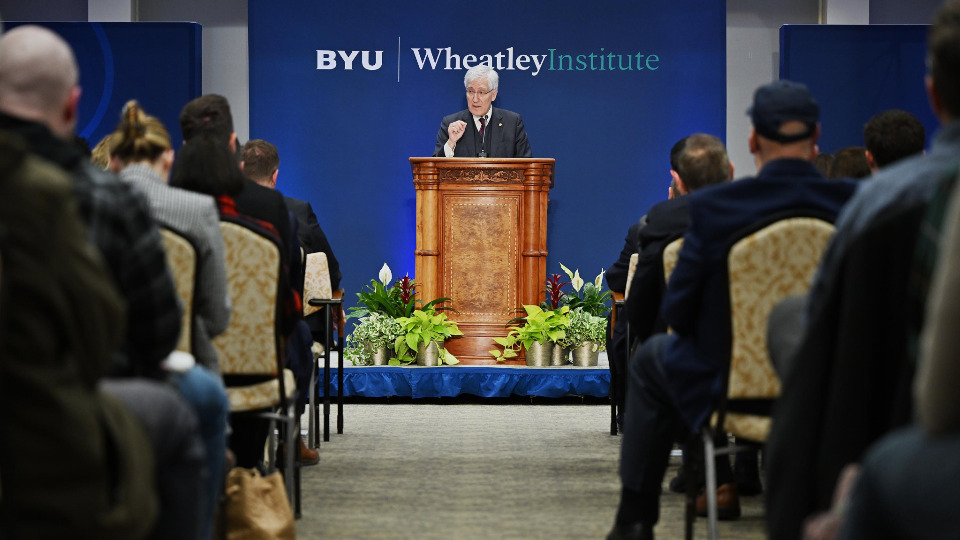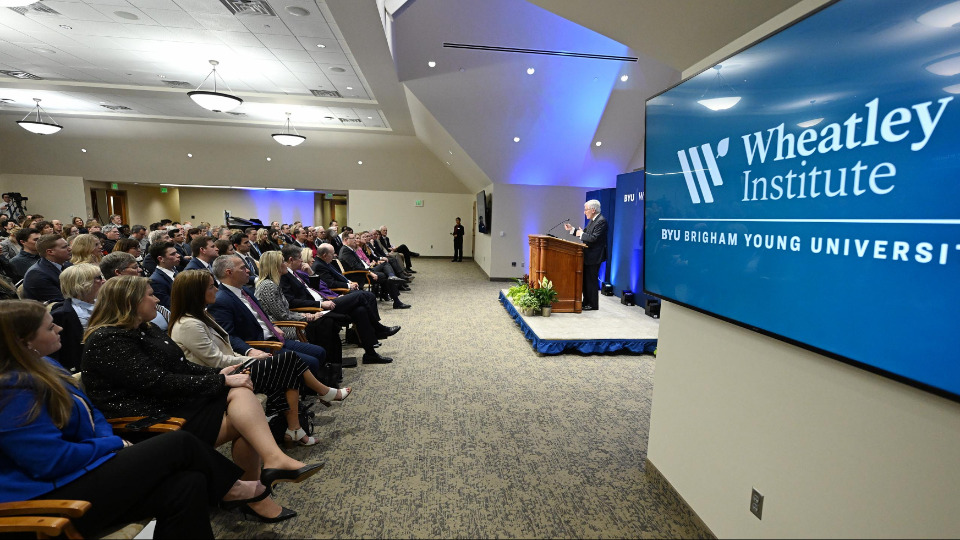
This story appears here courtesy of TheChurchNews.com. It is not for use by other media.
By William Matheson, Church News
Fostering virtue within individuals is a responsibility of the family and not the government, said a well-known conservative professor in a Thursday, March 7, lecture at Brigham Young University in Provo, Utah.
“The common good is the set of conditions that enables individuals, families, churches, to flourish,” said Robert P. George, the sixth McCormick Professor of Jurisprudence and director of the James Madison Program in American Ideals and Institutions at Princeton University, a program he helped found.
Speaking at the Wheatley Institute on the BYU campus, George talked about the need to keep government in its proper place, helping promote situations where local social groups, such as families and kids’ sports teams, can raise children and foster community, not having the government take over those social roles.
He continued by emphasizing that the flourishing, the result government is supposed to enable through protecting the basic “common good,” is not a materialistic view. The flourishing that George speaks of is a state of action, of doing with others around us.

“Flourishing consists in activity in doing things and engaging in real friendships, pursuing genuine knowledge, bringing up your family, creating or appreciating beautiful art, living a life of integrity, of honesty, of decency, and so forth.”
Individuals can only truly flourish when they have meaningful connections with those around them. This is especially true when it comes to young kids. The teaching and learning of virtues isn’t something learned all at once or in one encounter. The virtues that society demands in its citizens can only be taught by family, coaches, teachers and people who are invested personally in the well-being of those growing up around them.
“Every institution relies on [virtues], but they can’t produce them. Only the family can produce them, which means that when government or private corporations, or any other actors, damage the family … [they] promote immoral practices. They are undermining the very institution on which they rely to produce their workers, their jurors, their voters, their citizens.”
Of the United States Constitution, George emphasized the need for virtuous citizens to be present for the document to have effect. “The Constitution presumes that there will be a virtuous people who will observe and live by and honor and support and uphold and protect those principles.”
George pointed out that without a people well versed in virtue leading the government, the number of restraints put into the Constitution wouldn’t matter. “The people and the virtue of the people are the primary control on government,” he said.

In response to a question posed after his formal remarks on what helps families and local organizations to foster virtue, George replied, “Families, pastors, coaches, actually know by name the young men and women who it’s their responsibility to help to form as virtuous people and good citizens.”
Giving examples of national political leaders, George made the point that in actuality, those leaders didn’t know that individual by name, so they wouldn’t possibly be able to help teach children the way they needed, no matter the political party.
Local communities “know how to work with you to bring out the best in you and help you to be your best. Nobody else does. Big institutions can’t do that. … No economic structure can do that. Only the family can do that.”
In conclusion, George said: “The person who’s going to do a good job at virtue formation, whether it’s grandma or the coach or the pastor or the teacher, really has to know the specifics about the kid — what the kid really needs to grow in knowledge, wisdom and courage and humility and intellectual and moral strength. So be involved in the lives of the people you hope to shape. Don’t outsource it. That’s my fundamental message.”
Copyright 2024 Deseret News Publishing Company.